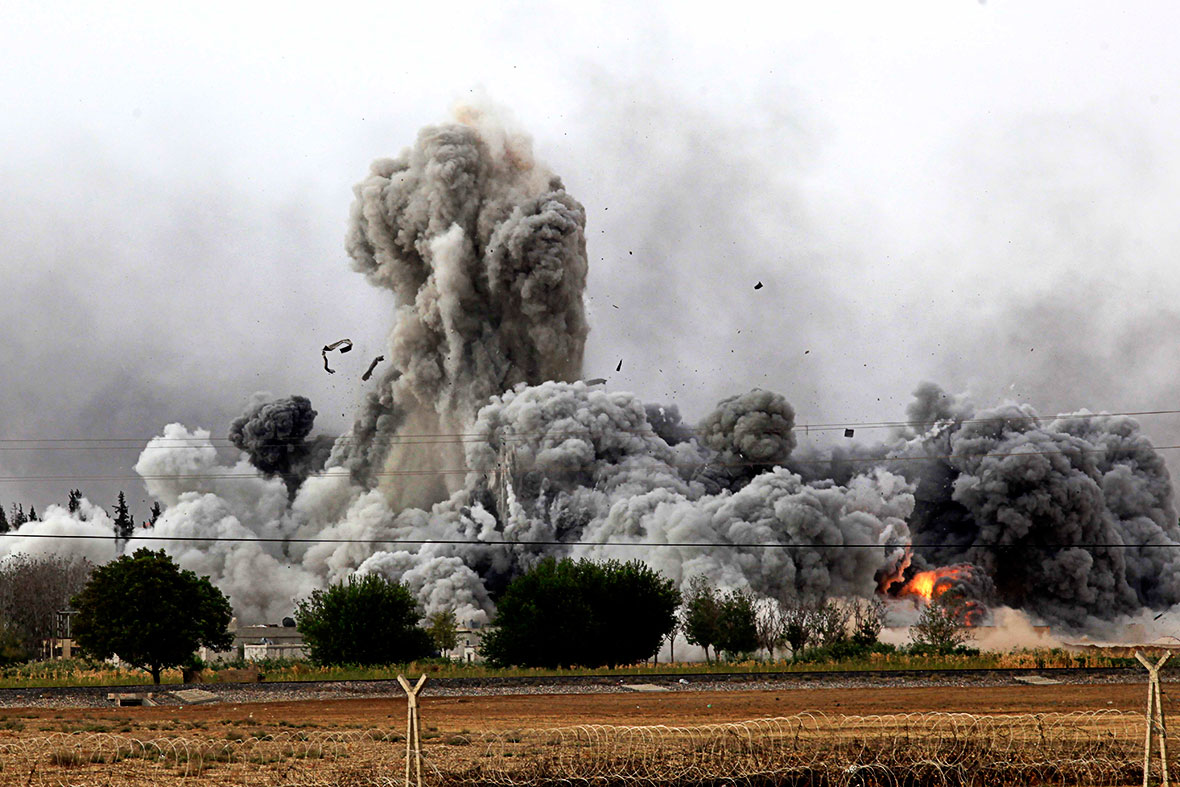
The US-led coalition airstrikes are designed to weaken the military and financial capabilities of Isis
AFP
The US military
believes it has destroyed almost $800m (£550m) in cash held in Islamic
State (Isis) banks in recent air strikes that
have destroyed dozens of oil refineries and pushed "the best-funded terrorist organisation" in the world into a group in crisis.
Operation Inherent Resolve,
which is supported by UK and French air strikes, has bombed 20 'jihadi
banks' where Daesh (Isis) money was held. In one bank an estimated $150m
(£102m) was destroyed at a house in the Isis stronghold of Mosul in
Iraq.
Major General Peter Gersten, who is the deputy commander for
operations and intelligence for the US-led operation against Isis, said
the lack of cash has contributed to a 90% increase in defections. He
added that he estimates that between $500m (£342m) and $800m has been
blown up due to intelligence they received from the self-declared
caliphate.
"We're seeing a fracture in their morale, we're seeing their
inability to pay, we're seeing the inability to fight, we're watching
them try to leave Daesh in every single way," Gersten said according to
the BBC.
The cash-strapped jihadists are said to be feeling the pinch
after losing ground in the past few months in both Syria and Iraq,
having lost up to three million citizens under their control compared
with their peak in 2014.
Isis last year approved a budget of $2bn (£1.3bn) predicting a $250m surplus. But since then they have been hit hard by the Iraqi troops, Kurdish insurgents and air strikes.
In January this year, the
UK-based Syrian Observatory for Human Rights reported that Isis
announced it was to cut fighters' salaries in half "because of the
exceptional circumstances".
Only last week Isis were accused of killing their own jihadi fighters so they can remove their organs and sell them on the black market.
Gersten added that the number of foreign fighters arriving
to fight for Isis had fallen to about 200 a month, from a peak of
between 1,500 and 2,000 per month a year ago. And in February this year,
Washington estimated there were some 25,000 Isis fighters, down from
close to 31,500 in 2015.

Post a Comment